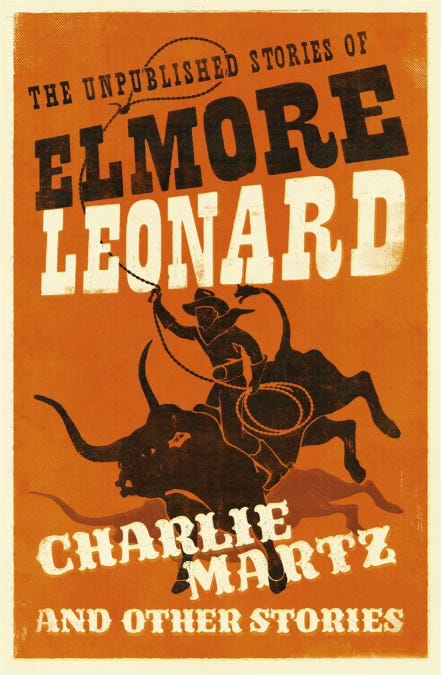Why Charlie Martz and Other Stories Should Never Have Been Published
Respecting Elmore Leonard’s legacy means honoring his wishes.
When a writer dies, there’s a quiet ethical test that follows. The temptation — for families, publishers, sometimes even scholars — is to pry open drawers, hard drives, or old file boxes and see what’s left. But an artist’s private judgment about their work doesn’t end with their life. It’s part of their legacy. Honoring that means respecting what they chose to share and protecting what they explicitly chose to keep buried.
Anybody who knows me knows that I’m serious when it comes to protecting Dutch’s legacy. Somebody has to stick up for him. That’s why I believe Charlie Martz and Other Stories never should have been published.
Charlie Martz and Other Stories (William Morrow, 2015) is a collection of fourteen previously unpublished stories and one uncollected magazine piece. The publisher touted it as a glimpse of Elmore Leonard “on the cusp of greatness.” In truth, it was a calculated posthumous release of stories that were either rejected by publishers or never offered, spanning nearly fifteen years.
In 2009, I fished these stories out of the basement archive and created a typescript called The Unpublished Stories of Elmore Leonard in case Dutch wanted to revisit them — maybe polish one up for an anthology. But he never did. He made it clear to me that he never wanted these stories published.
But after his death, the family and publisher pressed ahead, turning out a collection hyped with marketing copy that framed these stories as hidden gems.
If Charlie Martz had been published responsibly — framed as a scholarly edition with my critical notes — I would have grudgingly accepted the idea and not felt totally disloyal to Dutch’s wishes.
They were published with no such notes. Dutch’s son Peter’s introduction was filled with personal observations but did not address what holds this collection together. The publisher, meanwhile, suggested these were overlooked masterpieces, inviting new readers to see them as revelations. That’s deeply misleading.
My purpose here isn’t about picking apart each story, although I have the detailed notes for future editions.
It’s not just me. Outside critics spotted the flaws in the unpublished stories immediately. American author and literary critic Charles Finch called Charlie Martz “an odd volume, extremely uneven, with its author groping toward subjects he would eventually command.” One disappointed fan on Amazon wrote, “This book of things he chose not to publish should have remained right where he left them…” There were others.
If you’re a collector, by all means pick up Charlie Martz. But if you’re a reader and not a bitter critic like me, and you want to read how Dutch progressed as a writer, read my introduction to The Complete Westerns followed by the thirty stories and five western novels written between 1953 and 1960. Reading Charlie Martz and Other Stories doesn’t pack anywhere near the enjoyment you’ll get from his published Western stories and novels.




